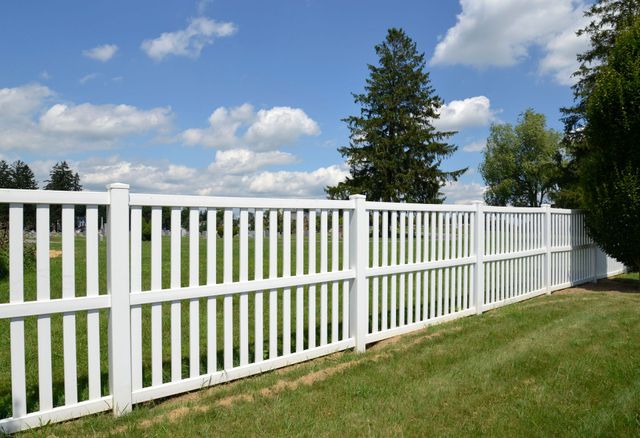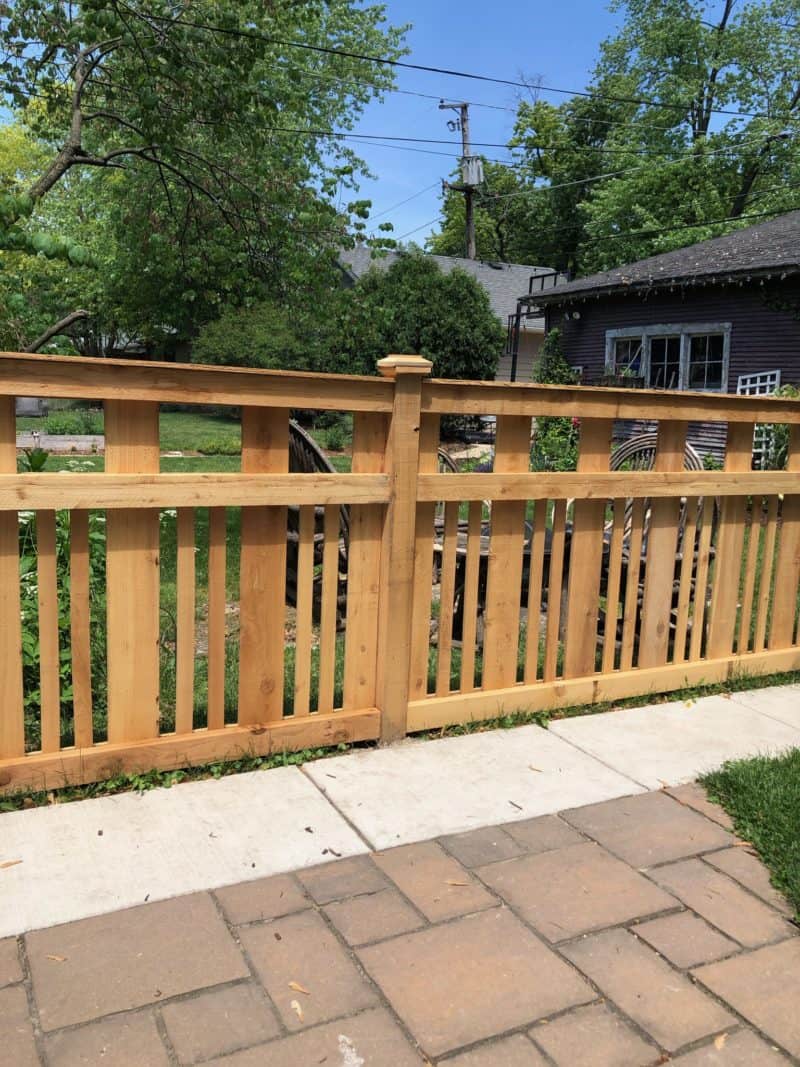All Categories
Featured
When you decide to install a fence around your household property, it's important to recognize the authorization needs particular to your area. Right here's an extensive look at the permits you might require for fencing setup.
Why Do You Required a Permit for Fence Installation? A fence is even more than just a barrier in between buildings-- it can influence safety and security, home worth, visual appeals, and even environmental problems. City governments require licenses to make certain that fences satisfy particular standards and do not cause problems for energies, neighbors, or the neighborhood as a whole. Permits also make sure that the installation follows zoning regulations, developing codes, and safety laws.
![]()
Types of Permits You May Require. Structure Permit. A building authorization is just one of one of the most typical licenses needed for fencing setup. This authorization makes sure that the fencing fulfills local structure codes. As an example, if you're constructing a fence over a specific height (usually over 6 feet), you'll likely require a building license. The local building department will usually assess the website and review plans to make certain the structure is secure and does not block public spaces or develop hazards.
Zoning Authorization. A zoning permit ensures your fence conforms with location, elevation, and setback policies. Fencings might require to be established back a specific distance from pathways, roadways, or home lines to avoid obstruction or interference with utilities.
HOA Approval. If your residential property belongs to a property owners association (HOA), you might require to seek authorization prior to setting up a fencing. HOAs generally have guidelines that control the appearances and structure of fencings to ensure they agree with the neighborhood. You may require to submit your prepare for authorization, and the HOA might restrict fencing elevation, design, or product.
Specialty Permits. In some locations, there might be additional permits needed for certain circumstances. As an example, if your fencing is near a protected environmental location or situated in a disaster area, you may require to obtain specialty licenses connected to environmental effect. If the fencing is in a location with underground energies, you might need to get clearance to stay clear of harmful pipes or cords.
![]()
Easement or Energy Business Authorization. Before installing a fence, it's critical to check whether the home consists of an easement, such as an energy easement, which might influence where you can put your fencing. Easements are locations of land marked for public or private utilities, and you may need permission from the energy firm or various other authority to build within this location.
Just How to Locate Out What Allows You Required. To ensure that you're adhering to all the necessary guidelines, below's exactly how you can figure out the particular permits required for your fence installation:
![]()
Browse Through Your City Government Workplace: The primary step is to examine with your regional structure or zoning division. Numerous cities and areas have standards readily available online that define what kinds of licenses are required for fencing installation. If not, calling or checking out the workplace in individual can assist clarify the procedure. Inspect Your City's Site: Many towns offer details about fence installments and the licenses called for with their official internet sites. Some websites also enable you to send applications online. Speak With a Fencing Installation Professional: If you're not certain concerning regional regulations, an expert fence contractor can assist. They recognize with the allowing process and can lead you with the actions. The Repercussions of Not Obtaining an Authorization. Failing to safeguard the essential authorizations prior to mounting a fence can lead to substantial consequences. You may be fined or called for to remove the fencing completely. In addition, if you decide to offer your home in the future, the lack of a permit can hinder potential purchasers, as they might see it as an indication that the home is not certified with regional regulations. Making sure that you have the proper permits will conserve you time, cash, and headaches over time.
Conclusion. Mounting a fencing around your property can add both safety and security and visual charm, yet it is essential to guarantee you're adhering to the lawful actions in the process. Researching the details license needs for your location, consisting of building permits, zoning policies, HOA authorization, and utility authorizations, will help guarantee your fencing setup goes efficiently. Putting in the time to understand these needs now can conserve you from costly blunders and possible lawful problems down the line.
Why Do You Required a Permit for Fence Installation? A fence is even more than just a barrier in between buildings-- it can influence safety and security, home worth, visual appeals, and even environmental problems. City governments require licenses to make certain that fences satisfy particular standards and do not cause problems for energies, neighbors, or the neighborhood as a whole. Permits also make sure that the installation follows zoning regulations, developing codes, and safety laws.

Types of Permits You May Require. Structure Permit. A building authorization is just one of one of the most typical licenses needed for fencing setup. This authorization makes sure that the fencing fulfills local structure codes. As an example, if you're constructing a fence over a specific height (usually over 6 feet), you'll likely require a building license. The local building department will usually assess the website and review plans to make certain the structure is secure and does not block public spaces or develop hazards.
Zoning Authorization. A zoning permit ensures your fence conforms with location, elevation, and setback policies. Fencings might require to be established back a specific distance from pathways, roadways, or home lines to avoid obstruction or interference with utilities.
HOA Approval. If your residential property belongs to a property owners association (HOA), you might require to seek authorization prior to setting up a fencing. HOAs generally have guidelines that control the appearances and structure of fencings to ensure they agree with the neighborhood. You may require to submit your prepare for authorization, and the HOA might restrict fencing elevation, design, or product.
Specialty Permits. In some locations, there might be additional permits needed for certain circumstances. As an example, if your fencing is near a protected environmental location or situated in a disaster area, you may require to obtain specialty licenses connected to environmental effect. If the fencing is in a location with underground energies, you might need to get clearance to stay clear of harmful pipes or cords.

Easement or Energy Business Authorization. Before installing a fence, it's critical to check whether the home consists of an easement, such as an energy easement, which might influence where you can put your fencing. Easements are locations of land marked for public or private utilities, and you may need permission from the energy firm or various other authority to build within this location.
Just How to Locate Out What Allows You Required. To ensure that you're adhering to all the necessary guidelines, below's exactly how you can figure out the particular permits required for your fence installation:

Browse Through Your City Government Workplace: The primary step is to examine with your regional structure or zoning division. Numerous cities and areas have standards readily available online that define what kinds of licenses are required for fencing installation. If not, calling or checking out the workplace in individual can assist clarify the procedure. Inspect Your City's Site: Many towns offer details about fence installments and the licenses called for with their official internet sites. Some websites also enable you to send applications online. Speak With a Fencing Installation Professional: If you're not certain concerning regional regulations, an expert fence contractor can assist. They recognize with the allowing process and can lead you with the actions. The Repercussions of Not Obtaining an Authorization. Failing to safeguard the essential authorizations prior to mounting a fence can lead to substantial consequences. You may be fined or called for to remove the fencing completely. In addition, if you decide to offer your home in the future, the lack of a permit can hinder potential purchasers, as they might see it as an indication that the home is not certified with regional regulations. Making sure that you have the proper permits will conserve you time, cash, and headaches over time.
Conclusion. Mounting a fencing around your property can add both safety and security and visual charm, yet it is essential to guarantee you're adhering to the lawful actions in the process. Researching the details license needs for your location, consisting of building permits, zoning policies, HOA authorization, and utility authorizations, will help guarantee your fencing setup goes efficiently. Putting in the time to understand these needs now can conserve you from costly blunders and possible lawful problems down the line.
Latest Posts
Trustworthy Commercial Roof Covering Solutions by Weathercraft
Published May 26, 25
1 min read
Uncover Best Vehicle Maintenance Solutions from Montclare Auto Repair – Quality Service Today
Published May 25, 25
1 min read
Trusted Expenses Door Solutions for Houses and Businesses
Published May 24, 25
1 min read
More
Latest Posts
Trustworthy Commercial Roof Covering Solutions by Weathercraft
Published May 26, 25
1 min read
Uncover Best Vehicle Maintenance Solutions from Montclare Auto Repair – Quality Service Today
Published May 25, 25
1 min read
Trusted Expenses Door Solutions for Houses and Businesses
Published May 24, 25
1 min read